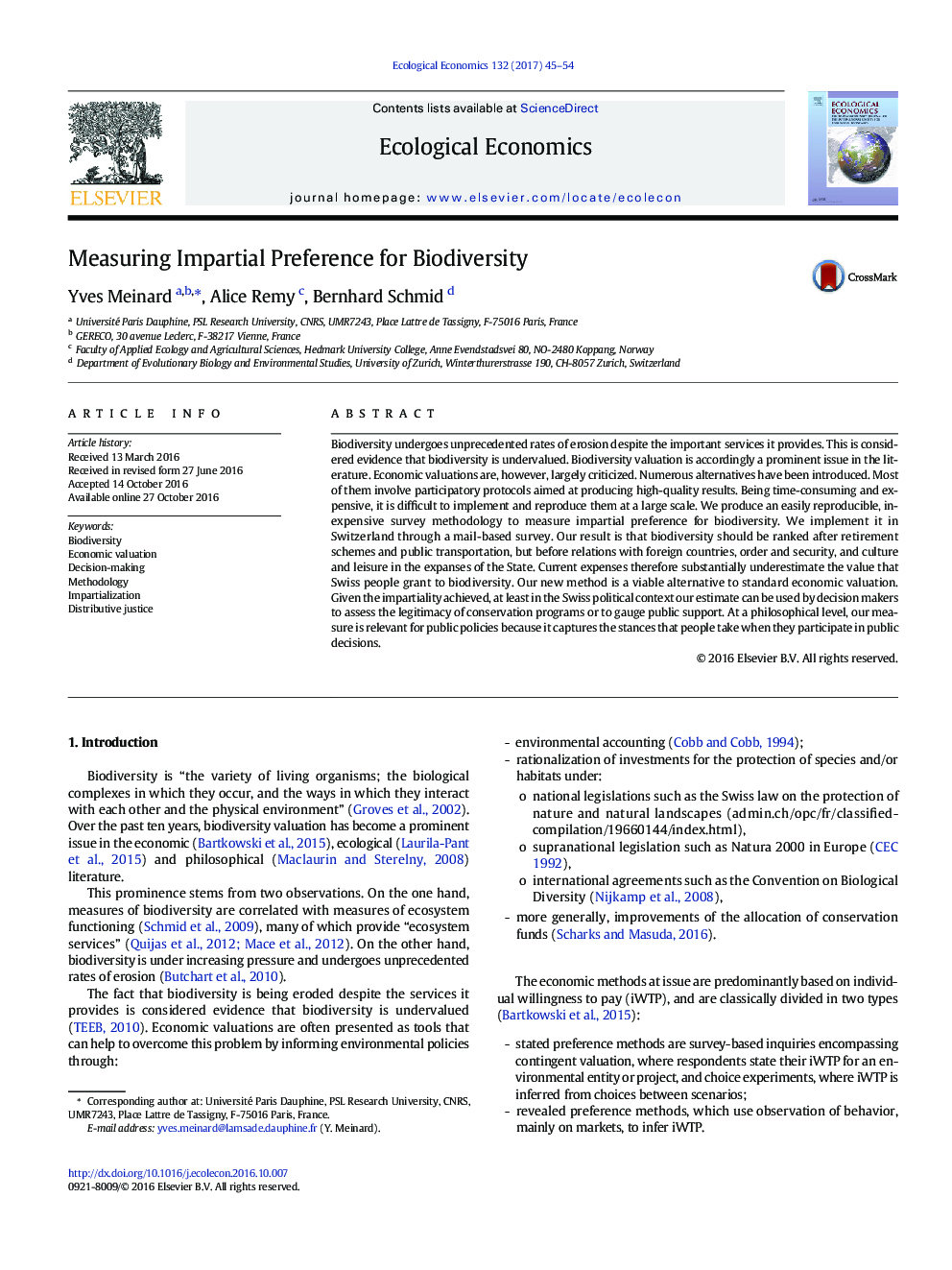| کد مقاله | کد نشریه | سال انتشار | مقاله انگلیسی | نسخه تمام متن |
|---|---|---|---|---|
| 5048839 | 1476347 | 2017 | 10 صفحه PDF | دانلود رایگان |
- We introduce a methodology to measure impartial preference for biodiversity.
- A pilot implementation in Switzerland illustrates how it produces quantitative data.
- Statistical exploration shows that it captures reasonably impartial preferences.
- The Swiss rank biodiversity before foreign policy, order/security, culture/leisure.
- This captures public opinion and is more relevant that WTP to inform public policy.
Biodiversity undergoes unprecedented rates of erosion despite the important services it provides. This is considered evidence that biodiversity is undervalued. Biodiversity valuation is accordingly a prominent issue in the literature. Economic valuations are, however, largely criticized. Numerous alternatives have been introduced. Most of them involve participatory protocols aimed at producing high-quality results. Being time-consuming and expensive, it is difficult to implement and reproduce them at a large scale. We produce an easily reproducible, inexpensive survey methodology to measure impartial preference for biodiversity. We implement it in Switzerland through a mail-based survey. Our result is that biodiversity should be ranked after retirement schemes and public transportation, but before relations with foreign countries, order and security, and culture and leisure in the expanses of the State. Current expenses therefore substantially underestimate the value that Swiss people grant to biodiversity. Our new method is a viable alternative to standard economic valuation. Given the impartiality achieved, at least in the Swiss political context our estimate can be used by decision makers to assess the legitimacy of conservation programs or to gauge public support. At a philosophical level, our measure is relevant for public policies because it captures the stances that people take when they participate in public decisions.
Journal: Ecological Economics - Volume 132, February 2017, Pages 45-54
